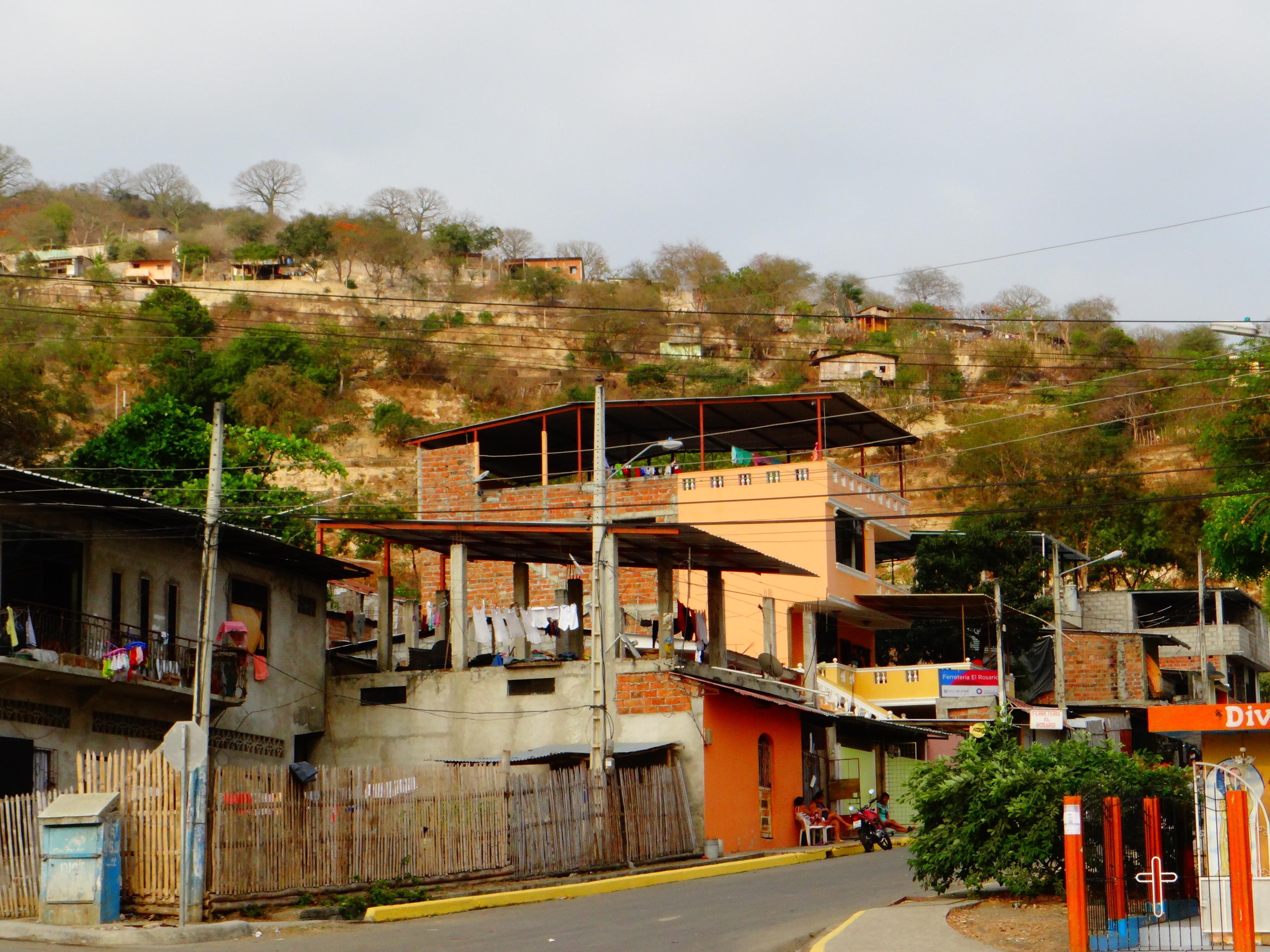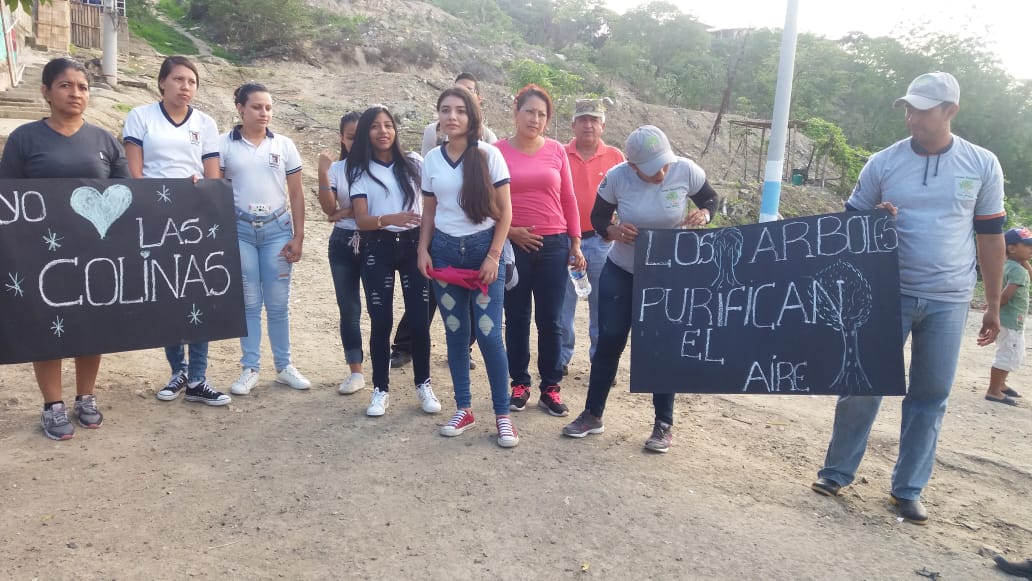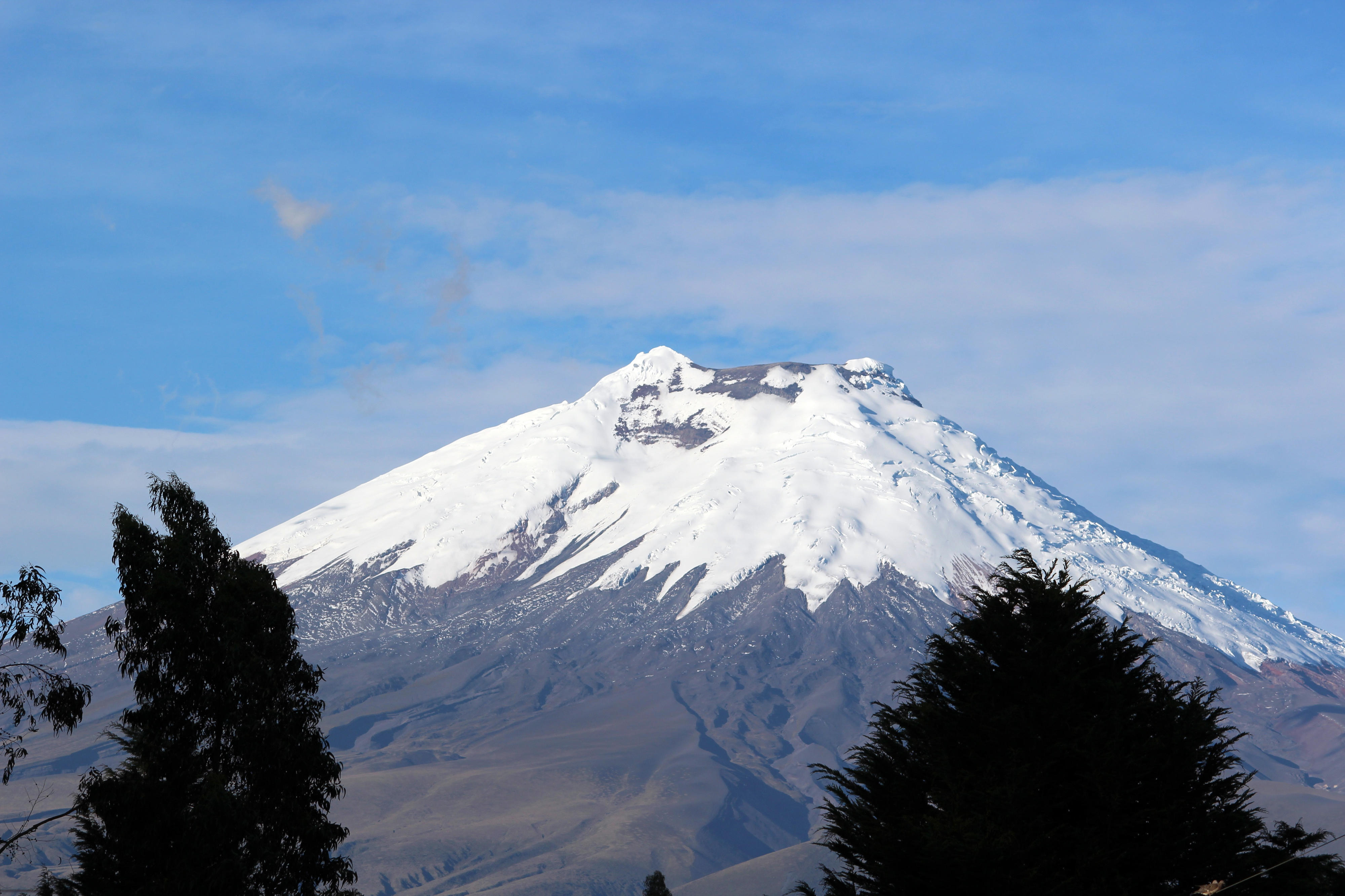Ecuador: cooperation in action Guardians of the hills: women in the vanguard of climate resilience
Houses in San Pablo, Ecuador
With rainfall becoming both more frequent and much heavier due to climate change, the risk of landslides is growing. In addition, the social and economic structures in San Pablo are weak. This is evidenced for example by the particularly high crime rate in the district; violence against women is also a major problem.
On behalf of the BMZ, the Deutsche Gesellschaft für Internationale Zusammenarbeit (GIZ) is supporting ongoing efforts up to 2021 in the San Pablo district to integrate public spaces like orchards, terracing or playgrounds into the natural landscape of the slopes, and to make them more resilient to rainfall. The construction measures are supporting the natural ecosystem of the slopes with a view to stabilising the embankments and making it easier for rain to seep into the soil and disperse. This way the risk of landslides can be reduced. Attractive communal spaces are thus created which give children new places to play and make it possible to grow vegetables in the middle of the city. This means that the people of San Pablo not only have a safer place to live, they also have liveable public spaces which they can even utilise to grow their own food.
Guardians of the hills in San Pablo, Ecuador
The women who have been appointed by the community as “guardians of the hills” play a key role here as decision-makers and as local activists for more climate resilience in San Pablo. With the help of a digital early warning system, they are able to inform the community in good time when there is a threat of landslides, and coordinate with the emergency services of the city and arrange for protective measures. This enhances the women’s position as important points of contact in their district and strengthens them in their endeavours to communicate their interests and problems – also with regard to other challenges like violence against women or economic problems.
Concrete activities carried out by the women include putting together information for radio broadcasts, reports, videos and podcasts so that they can report about the challenges they face in their communities and also about their efforts to fight the impacts of climate change. This way they can tell their stories in their own way and inspire other women and communities to get more involved.
Furthermore, the solutions, recommendations and lessons learned for participatory, community-based, gender-oriented urban planning approaches that result from their efforts are also being made available to ministries at the national level to be used for ecosystem-based adaptation to climate change.
This work shows that actively promoting women to get engaged in climate resilience efforts is a way for people to contribute actively towards shaping the development of their communities and living spaces.
As at: 27/09/2022


